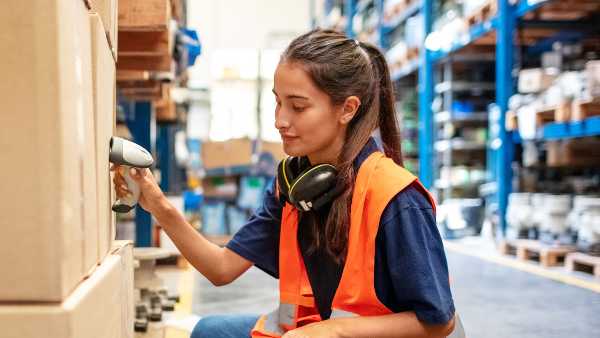Export subsidies help SMEs but "you have to hustle"

- Sandra Visser-Meijer
- Background
- Edited 9 May 2025
- 4 min
- Managing and growing
- International
You do not have to be a major player to get a subsidy for your export plans. SMEs at the smaller end of the scale are also eligible. That said, you do have to make an effort. Because only if you meet all the conditions can you apply for 'free money'.
A subsidy can give you a big boost if you want to start exporting. In this article, 2 experts share their knowledge about the possibilities and the requirements of various subsidies
Free money
“Subsidies? That means free money for the taking.” Wessel de Vries, a specialist in international business at Ynbusiness in Friesland, hears that all the time. Yet the reality is a bit more complicated, he says. “There are good schemes, and you do get money, but in the process, you commit to a number of conditions and ground rules. You really need to mean business: stand by your word, be accountable, and invest time, energy, and money.”
Bert Beverdam, Managing Consultant at subsidies consultancy PNO, agrees. “Applying for a subsidy can be complicated. You have to follow certain procedures and there are deadlines to contend with. On the one hand, you must stay within the legal frameworks. On the other, you must be creative so you can align your plans with the subsidy you are after.”
Exporting is not something you just do on the side
Always consider applying for a subsidy carefully, advises De Vries. A minor deviation from the may lead to a rejection. "If you are seriously interested in exporting, you prepare well. A complicated application process will not make you put a subsidy to one side."
“Exporting is not something you just do on the side. Even with a subsidy, it is your motivation and choices that make the difference between success and failure. So, before you go international, make sure your business is ready. With or without 'free money'."
Travel and online meetings
Exports have been important to the Dutch economy for decades. Although there are peaks and troughs, the export of products and services often drives economic growth. A few years ago, De Vries saw a sharp decline in interest in exports among entrepreneurs. “Experienced SMEs were hit hard here and there, while start-ups put their plans on hold due to COVID.” Now he sees plenty of movement again with foreign travel back in full force.
However, online video calls are here to stay. “That works fine if you already know a business partner or customer,” says De Vries. He believes that video calling is also being used more for technical purposes. Professionals who previously had to travel more often are now helping remotely with the installation or repair of large machines. “Businesses are innovating in this way. It may be interesting for many entrepreneurs to look into available subsidies in this area as well.”
Financial strength
Many businesses that specialise in export are doing well. But US President Donald Trump's policies are causing uncertainty. Business owners are also struggling with high costs and staff shortages. And subsidies are not readily available to help with those specific problems. However, they are when it comes to tapping new markets according to De Vries. “For example, if you want to enter another market because you can no longer do business in Ukraine or Russia, you can get help from Support International (SIB). Within that scheme, you can apply for funds for things such as coaching or help with your start-up in a new market.”
De Vries believes an export subsidy offers a business many advantages. “You get money, so you have to invest less of your own equity. That means you run less financial risk. That puts you in a stronger position and will make it easier for you to take our an additional from your bank. You will also get an edge over the competition, because you can keep your product-development costs down, for example. That will mean lower sales prices. Finally, you can expand your by collaborating with knowledge institutes, governments, market players and companies.”
Applying for an export subsidy
Subsidies offer many benefits but applying for them is not straightforward. Bert Beverdam sees that, with tight budgets, limited openings, and stringent requirements, it is getting harder to win subsidies. “Applying for export subsidies is not ‘business as usual’ for most companies,” he says, “So it takes them quite some time, and the chances of success are not always that high. Their success rate goes up when they use experienced consultants. Subsidy providers look at each application with a professional eye and a lot of knowledge. That is why it is still worthwhile to submit applications for subsidies.”
You can also apply on your own for export subsidies “That is an option specially when the amounts involved are smaller,” says de Vries. “Those applications can sometimes be done and dusted in a few hours.” Like Beverdam, he suggests bringing in a specialist if the amounts involved are larger and the application procedures are more complicated.
Applying for subsidies is not ' business as usual' for most companies
Getting started
With these tips from Beverdam, SMEs business owners can get straight to work on their subsidy applications:
- Check this overview of and schemes. It includes both national and international subsidies.
- Is your business really an SME? Take the European Commission's SME
- Sometimes an application has to be submitted quickly. In fact, some subsidy pools operate on a “first come, first served” basis. In other cases, the number of applications is so large that the budget dries up fast. Make sure to give your application all the attention it needs, even if you are in a hurry.
- If no subsidy scheme applies, a government may still offer support to businesses. This is called de (in Dutch). Strict conditions apply, and an entrepreneur may receive a maximum of €200,000 per 3 tax years.
- Check in advance whether you need . This electronic identification system is used by many institutions that offer subsidies schemes.
- Make note of the validity periods for vouchers and schemes. Communicate to subsidy providers any changes or extension requests your business would like to make.
Export subsidies
If you do business abroad, or want to start, you may be interested in these 4 subsidy schemes.
1. Support International Business (SIB)
can help you get started as an exporter or when you are entering a new foreign market.
2. Dutch Good Growth Fund (DGGF)
The supports you with loans, setting up foreign subsidiaries, export-credit insurance, and export financing in emerging markets and developing countries.
3. The Dutch Trade and Investment Fund (DTIF)
The gives you a leg up if you want to do business abroad and are looking for funding. This subsidy applies to all countries except those covered by the .
4. Demonstration projects, feasibility studies, and investment preparation projects (DHI)
The subsidy scheme supports business owners who want to invest in a business or convince potential buyers of their technology, product or service.
5. Eurostars subsidy
The Eurostars supports SMEs in the high-tech research and development sector that collaborate with partners in other countries. There are 2 registration periods for the subsidy each year.


